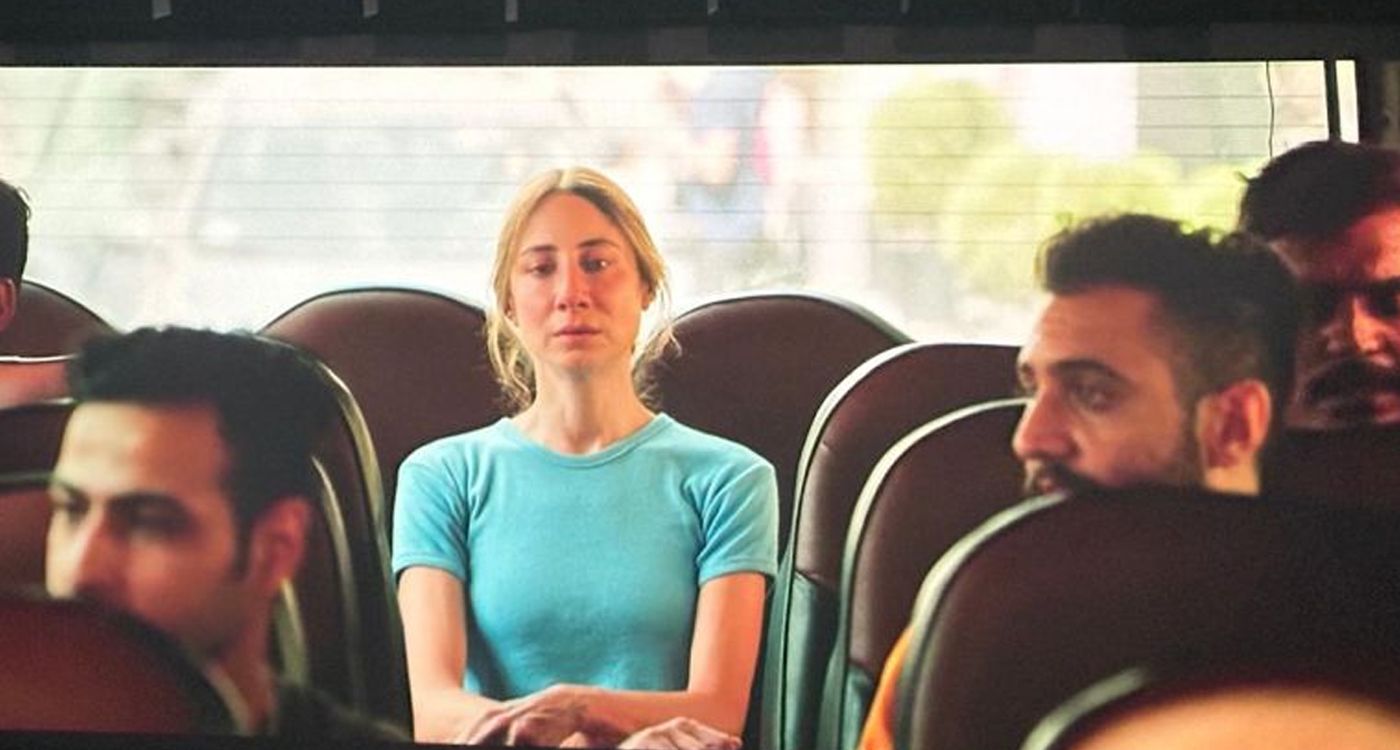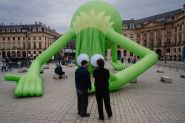
The Lebanese Film Festival in France (FFLF) opened its doors at the Arab World Institute on Sunday, October 13, 2024. The festival will take place from October 14 to 20 at the Lincoln Cinema in Paris.
During the opening night at the IMA, Jack Lang, the president of the institute, emotionally declared: "Faced with an unacceptable situation, regardless of the reasons, I will not make a political speech. But how can one harm this country that is so dear to me? I was fortunate to know Lebanon early in my life. It has marked my youth and my cultural life. As a young student, I was invited to Rachana, where I had the privilege of performing on stage in this village. This country touches us deeply. France and Lebanon are sister nations, and when Lebanon hurts, so do we. We must feel it in our flesh, our souls, our hearts, our history, and our present. We must fight vigorously for a ceasefire." Jack Lang added, "We will celebrate the soul of this country. It is one of Lebanon's miracles to produce literary works, internationally acclaimed films, and contemporary music, while being continuously torn and attacked, thanks to the resilience, energy, creativity, and inventiveness of its people.”
The festival's patron, filmmaker Danielle Arbid, shared her feelings: "My relationship with Lebanon has always been troubled, as those familiar with my work know. I've long debated whether being born in Lebanon was a curse or a blessing. It's during tough times like these that I realize how much of a blessing it is, how precious Lebanon is, and how much we all love it, even those with complex relationships with it. Today, it's our duty to speak about Lebanon, to express how much we love, support, and portray it through our work. Every day, we wonder what we can do to end this nightmare."
Sarah Hajjar, president of the FFLF, expressed both her enthusiasm and outrage in her opening speech: "It's a pleasure to see this full house and to see that our efforts are rewarded by your presence. This edition was particularly challenging to organize. As we contemplated the festival's theme, we considered discussing the war, not realizing how sadly it would resonate with current events." She also affirmed that Lebanon is mired in a dark tragedy that continues to worsen. "The team of the Lebanese Film Festival in France joins the call for an urgent and immediate ceasefire."
Actress Diamand Abou Abboud gave a moving testimony: "The journey from Beirut to Paris wasn’t easy, but I was determined to come and raise my voice for Lebanon. As a child of war, I say loudly: no to this war. I reject it, despise it. No to this life of violence. No to what is happening today in my country, my home, and to what is affecting my family, my identity, Lebanon and its people. Every human being deserves to live, not just survive and dream of a better life. Sometimes, I feel powerless, unable to protect my parents and my country, and I feel fear, guilt, sadness, and anger. But I always rise again, like our cedar, 'Arzé,' which, despite everything, stands tall, deeply rooted, turning towards the light, still believing in love, hope, beauty, strength, and the joy of life. On behalf of the creators and the family of 'Arzé,' I invite you to journey to the heart of our beloved Beirut, and I urge you to speak about Lebanon, humanity, and justice wherever you go."
Echoing these words, the opening film, Arzé, launched the fourth edition of the FFLF. Directed by Mira Shaib, it stars Diamand Abou Abboud in the lead role, alongside Betty Taoutel and Bilal Al Hamwi. Arzé, a single mother, takes her teenage son on a journey across Beirut in search of their stolen scooter, their only means of livelihood.
The subtle and emotional performance of Diamand Abou Abboud embodies Arzé, a Lebanese woman in a universal portrait. The actress reflects the strength and vulnerability of this resilient and combative woman. Interviewed by This Is Beirut, Diamand Abou Abboud confesses: "In embodying Arzé, I drew from deep within. Every Lebanese who has lived in Lebanon carries a part of 'Arzé.' I respect her deeply. Under the current circumstances in Lebanon, it’s the first time I've felt so sad, unable to channel the power of this character. I felt vulnerable and defeated. But I had to draw on her strength and look towards the light and life. Arzé embodies every mother and every Lebanese woman. Throughout my performance, I was especially careful to protect her."



Comments